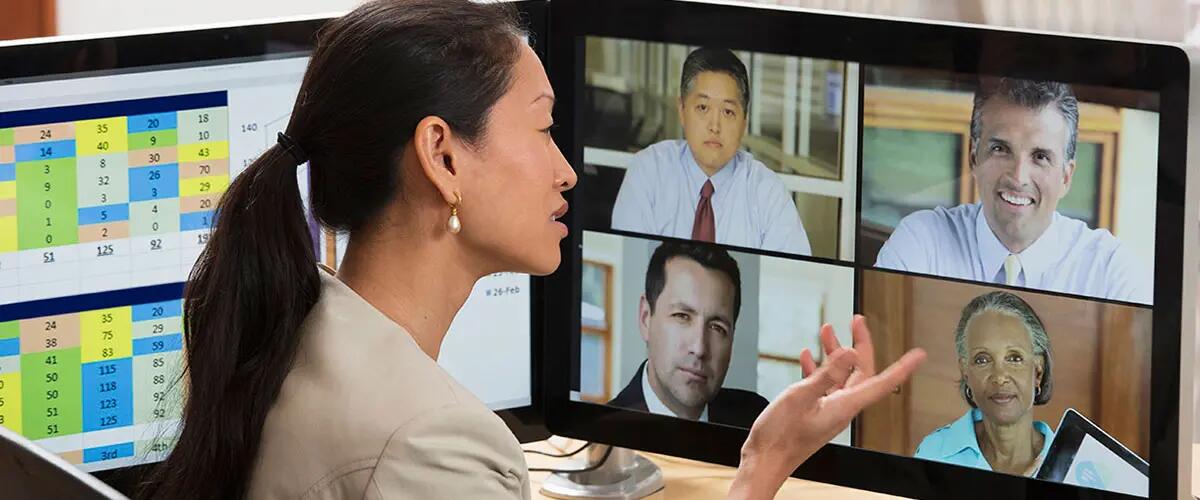
Is your virtual team performing at its best?
Working online changes our interactions, relationships and decisions, according to Terri Kurtzberg, an associate professor at Rutgers Business School and author of Virtual Teams: Mastering Communication and Collaboration in the Digital Age.
“Leaders and employees may unintentionally act in more self-serving ways, sound more negative to each other, trust each other less, and do and say less to connect with others,” Kurtzberg said.
With millions of teams moving online amidst the COVID-19 pandemic, Kurtzberg shares best practices for employees working together remotely.
What makes the best virtual teams work?
- Managers should provide more structure than usual. Ask: what, exactly, is each person responsible for and supposed to do? What is required at each meeting or interaction? Is it to update one another, decide something or discuss options.
- Nothing will be perfect the first time you try it. The most successful leaders are the ones willing to adjust.
- Asking employees, “What isn’t working?” is as important as hearing about what is. Explicitly asking for bad news this way, whether about how the team is interacting or about the content of the work itself, may be the only way it gets discussed.
- Make sure staff have different ways to contribute to conversations. Conference calls are not for everyone, so chances to offer written comments or private meetings can generate greater participation.
What are common pitfalls to avoid when working remotely with your team?
- Text is much easier to misinterpret than spoken language. Our default interpretation of emails, Slack messages, Lync IMs, etc. can be slightly more negative than intended. Give colleagues the benefit of the doubt when interacting with text.
- Recognize that small and large screens are different. They lead to different decisions and interaction patterns. People tend to associate small screens, like smartphones or tablets, with social interactions instead of work.
- For full attention during conference calls and other virtual meetings, hold staff responsible for a task such as capturing information or following up. When an employee has a responsibility versus participating as a passive listener, the experience is as different as night and day.
What are ways to build trust and deal with conflict in an online environment?
- Encourage people to reach out one-on-one. It is much easier to build trust in smaller interactions than in larger groups.
- When online conversations veer off track, pick up the phone! One-on-one phone conversations are more likely to result in goodwill, and are just as good as video calls at building trust.
- Keep teams together for longer periods. The trust and understanding that build up are a huge advantage and should not be overlooked.
What ground rules should be in place ahead of time during conference calls?
- Determine the purpose of the call.
- Keep introductions short (if they are needed).
- Recap often, not just at the end. You will lose people’s attention regularly, so this is a chance to gather everyone back in.
- Decide if the team needs to hear from everyone or not, and tell them either way.
- Organize the input. When several people try to talk at once, it is stressful, ineffective and favors the loud over the thoughtful. One option might be to have a concurrent way for people to send text messages when they are ready to speak, so the discussion leader can make time for them.
This piece was written by Megan Schumann and was originally published in Rutgers Today.
Press: For all media inquiries see our Media Kit


